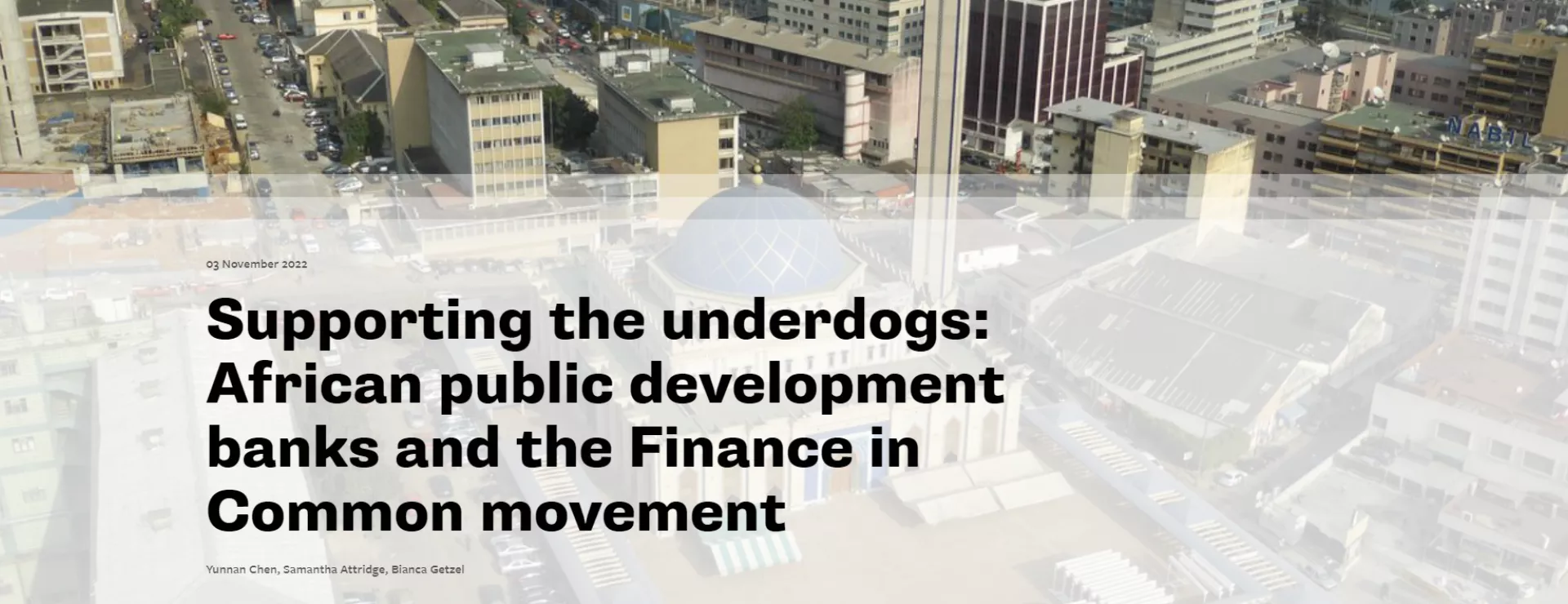Supporting the underdogs: African public development banks and the Finance in Common movement


Crisis is the new normal: pandemics, geopolitical conflicts and the all-encompassing threat of climate change disproportionately impact economies of the global south. In confronting these multiple challenges, the role of public development banks (PDBs) has come to the fore. This crystallised during the recent Finance in Common Summit (FICS) in Abidjan, Côte d'Ivoire, which mobilised the disparate but influential power of PDBs as a ‘visible hand’ for a sustainable economic recovery.
This year, the FICS shed light on the underrated role of African PDBs in building economic resilience – and potentially paving the way for a green economic recovery. In Africa, the economic impacts of global shocks have the highest social toll, yet the resources to address them are far scarcer.
New ODI research makes the case for strengthening African PDBs and points to the benefits of closer partnerships with international institutions to support these important development actors. We outline three takeaways below:
Supporting the underdogs: three key recommendations: